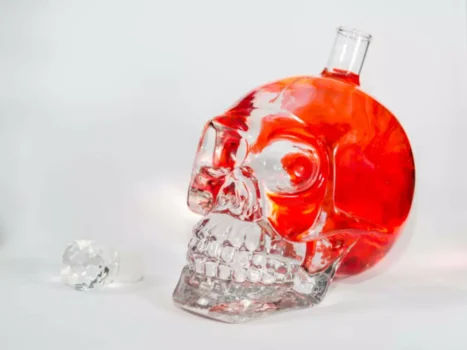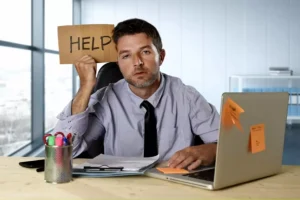Your goal should be to detach yourself from the trigger, recenter, and focus on your coping strategy. Gatehouse Treatment would like to help you overcome your relapse triggers. We propose you take a moment to learn about how addictive triggers can impact your life. In doing so, you will be able to spot the different https://ecosoberhouse.com/article/why-alcohol-makes-you-feel-hot-and-sweat-after-drinking/ signs of addiction and protect yourself better in the future. People at risk of a relapse should avoid stressful situations that are likely to push them to use drugs and alcohol. If you are starting to consider relapse, you may find that you are exposing yourself to possible triggers, even subconsciously.
Get a professional assessment by a therapist or addiction specialist:
Exercise releases endorphins that produce a natural “high,” which can provide an alternative to drugs or alcohol. Furthermore, regular exercise can help reduce stress, increase self-confidence, and structure one’s daily routine. People closest to the individual may set off cravings that eventually lead to a relapse. It is perilous for a person in recovery to be around substance-using friends and family.
Negative Feelings Trigger Relapses
Proponents of trigger warnings say they give a person a chance to prepare for the potential trigger or even avoid it. Given that a trigger tends to be more distressing if it comes as surprise, a warning can help someone with PTSD or other mental health condition feel safe. Former drug or alcohol users are in denial during emotional relapse, but they do not have thoughts of using.
Staying Grounded: Managing Triggers in Addiction Recovery
- This deepened understanding can help someone realize when they’re being triggered and take necessary steps to stop it.
- If addicted people could simply make the decision to get sober, snap their fingers, and turn their lives around, they would.
- It is essential to find physically and mentally engaging activities to help distract from addictive behaviors and keep individuals motivated in their recovery journey.
- For instance, the death of a loved one can easily trigger a relapse in a recovering addict.
- These feelings can lead to impulse behaviors against the individual’s recovery plan.
A relapse trigger, whether internal or external, is something that sets off cravings in recovering individuals. Failure to address and maintain these triggers during the recovery process only serves to increase the risk of relapse. The removal of external triggers can be as simple as a change in scenery or new group of friends.
Emotional Relapse
- There may be people in your life who consistently pressure you to drink or use drugs.
- “An example might be a person with a substance use disorder who finds walking by a bar or smelling alcohol prompts cravings and thoughts of drinking,” he explains.
- When people in recovery succumb to triggers, their brains create reasons to use substances despite knowing that they must remain abstinent.
- On average more than 85% of individuals are susceptible to relapse in the following year after drug and alcohol treatment.
- Learn to recognize physical signs of reacting to a trigger, such as changes in your breathing, so that you can employ strategies to calm yourself and shift your emotional state.
Many internal and external triggers are easily identifiable as they can be clearly connected to one’s substance misuse. For example, someone might see substance use imagery on a TV show and later romanticize using. These events can seem unrelated, but each step leads to the next and can snowball, eventually resulting in a relapse. When triggered, emotions like anger, guilt, and irritability arise along with a decline in self-esteem, paving the way for various unhealthy behaviors. Some might even be traumatizing enough to provoke harmful coping mechanisms, including self-harm, harming others, and substance abuse as well.
Relapse happens – and believe it or not, it happens to many people who complete addiction treatment. Additionally, it is beneficial to set clear and healthy boundaries with individuals in your network who still use internal and external triggers drugs or alcohol. Additionally, taking time out for yourself and engaging in activities such as exercise, meditation, or reading can help reduce any negative emotions and stress that could lead to substance use.
Major Life Changes
- Cravings may not always have an immediately identifiable source, and they can be difficult to overcome if you feel surprised by them.
- Therapists experienced in substance use disorders can help you identify and analyze possible triggers.
- Knowing what can tempt you to use substances, or cause a relapse, helps prepare for challenges ahead and allows for proactive coping strategies.
- To learn more about our outpatient programs, contact our admissions department today.
- These addiction relapse triggers can vary from person to person and can be incredibly powerful, leading to an increased risk of addiction relapse.
It’s important for people in recovery to be aware of the internal triggers they struggle with the most and have a plan in place to seek support when needed. While holidays are a time of celebration for some, they may be a struggle for people in recovery. Family and friends often tempt those in recovery to consume alcohol because they are under the misconception that one deviation from the treatment plan will not be detrimental. There are two main types of triggers that can start someone towards the path of relapse. Imagine attending a cocaine addiction treatment center where they teach you about the 12 steps of Alcoholics Anonymous.
Seeking Help In Recovery
By becoming aware of the environment or people that increase the risk of using or craving, a person can create boundaries to reduce temptation. Taking the time to identify and recognize high-risk situations can help individuals stay safer on their road to recovery. Identifying addiction triggers is essential to recovery as it helps individuals better understand their cravings and thought patterns. It is important to recognize these emotional triggers and manage them appropriately. Otherwise, it could lead someone down a path of substance abuse without even realizing what has happened.



